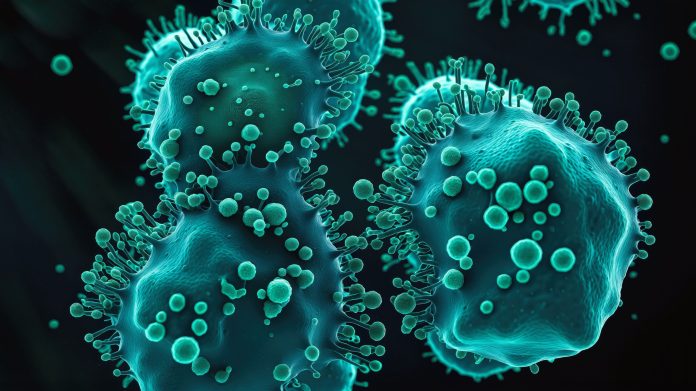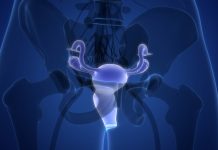Milena Angelova, EESC member and Rapporteur for the EESC opinion on Vaccine-preventable cancers, highlights the vital role of civil society in eradicating them
With cancer set to become Europe’s leading disease burden, the European Economic and Social Committee (EESC) believes that the case for concerted cooperation between countries and all-level stakeholders has never been stronger.
Over the past two decades, there has been an improvement in the care for those affected by cancer. Despite an increase in cancer diagnoses, the risk of mortality has decreased due to advancements in medical treatment. In Europe, the number of individuals diagnosed with cancer has risen by approximately 50% over the last 20 years.
However, the number of deaths has only increased by 20%, according to 2019 data. As about 40% of cancer cases are deemed preventable, vaccination has a vital role to play, together with healthy lifestyles and compliance with occupational health and safety rules and environmental protection measures, all of which contribute to the prevention of many types of cancer throughout life.
The European Commission recently proposed a Council Recommendation on vaccine-preventable cancers as a follow-up initiative to Europe’s Beating Cancer Plan (the Cancer Plan), a central pillar of the European Health Union. The EESC welcomes the Commission’s commitments in the area of cancer and calls for swift implementation. While focusing on a specific area, i.e. vaccination against human papillomaviruses (HPV) and the hepatitis B virus (HBV), the proposal plays a vital role in the overall range of measures to beat cancer, especially considering that the vaccines concerned prevent several kinds of cancer caused by these viruses.
At the same time, due attention must also be paid to fighting cancers caused by other factors.
Misinformation and disinformation about vaccines: Obstacles to preventing cancer
Anti-vaccine campaigns create and feed negative stereotypes and impede reaching that critical mass of vaccinated people necessary to stop the spread of certain vaccine-preventable cancers. To address this serious problem, fighting misinformation and disinformation is an essential part of the communication effort.
Regarding achieving the 90% target for the vaccination of girls against HPV by 2030 and the significant increase in the vaccination of boys, the EESC underlines striving for gender equality in terms of setting and implementing targets. The same holds for achieving the 2030 targets set by the WHO for vaccinations against HBV. The EESC calls for considerable efforts to be put into acquiring science-based evidence, as well as disseminating engaging and fact-based information through a range of channels, with a specific focus on the use of social media.
Increasing demand and supply should promote vaccination uptake. Target groups need proper information and encouragement for vaccination. The EESC emphasises the role of the school healthcare system and parents in this endeavour. Vaccine availability and accessibility are crucial, requiring prioritisation of cancer prevention at the political level and allocation of necessary financial, material, and human resources.
General practitioners, family doctors, and school physicians are crucial in providing accurate information, reducing fears, and guiding people to get vaccinated. The EESC emphasises involving civil society organisations in information and communication activities, especially to reach younger people.
The role of organised civil society
Cancer prevention not only saves lives and reduces suffering but also has economic implications, leading to savings in treatment and care costs and other resources. This is increasingly important due to growing needs caused by the ageing population and shortages of healthcare workers.
The EESC underscores the importance of a comprehensive approach to defeating cancer and ensuring a well-functioning and integrated system of prevention in all its forms, including primary prevention (vaccination, healthy lifestyle), secondary prevention (screening), and tertiary prevention (care and rehabilitation).
The EESC emphasises that health issues are each Member State’s responsibility, and each country needs a national programme of its own. We support close cooperation between Member States, backed by the Commission. Sharing experiences and best practices is crucial for improving vaccination coverage across the EU.
To encourage and increase vaccination participation, the EESC endorses stepping up the information and communication activities supported by the Commission. Spreading knowledge on vaccination and growing awareness and confidence in its benefits are crucial.
Moreover, addressing disinformation through engaging, fact-based content and partnering with social media platforms to mitigate the spread of false information are vital for decreasing prejudices and unjustified hesitation regarding vaccination. To effectively combat misinformation, fake news, and anti-vax campaigns, it is crucial to gather science-based evidence and global facts, track progress, and exchange best practices.
Coordinated monitoring and electronic vaccination data registries, in compliance with the GDPR, are also necessary here to gain a clear picture of the vaccination situation across the EU. This will help the various actors to focus targeted measures – in terms of both communication and the practical implementation of vaccination – on the areas and groups where the most significant gaps can be seen.
From the perspective of individual citizens, the EESC calls for the vaccination data to be integrated into people’s digital health data so that citizens have easy access to their overall vaccination history, as has been the case with COVID-19 vaccinations. The EESC also encourages the development of the European Health Data Space to facilitate the cross-border exchange of health data for care purposes.
Further actions require prevention and sufficient funding
Vaccination doesn’t replace screening in the fight against cancer. Screening must be improved for early detection, allowing for more treatment options and less aggressive interventions. Integrated data management should link to prevention efforts and cancer occurrence.
The EESC endorses using EU funding like the EU4Health Programme, the European Regional Development Fund, and the European Social Fund+ to enhance vaccine supply. Moreover, Horizon Europe funding plays a vital role in supporting research and innovation. The EESC also points to the need for Member States to allocate a more significant share of their investment in cancer prevention – supported by EU funding whenever applicable – to vaccination.











